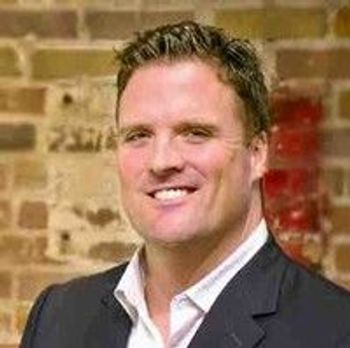
How I Got Embezzled
One physician describes how her former practice closed its doors after its chief financial officer led it to financial ruin.
In the mid-90s, I was a shareholder in a relatively large medical group that taught me some very hard lessons. This isn't a fairytale or even a nightmare - this is what happens when busy doctors take their eyes off the ball.
The group had been rocked by the recurring challenges of managed care in a rapidly shifting industry. There were a few "always happens" that we agreed on: cash flow was always unstable and always unpredictable. The other truism involved our office locations: one office always worked harder and was always more profitable than the other office. Board members were quick to assign blame for this, causing unspoken hard feelings and a lack of inter-office communication.
We needed a chief financial officer (CFO) to help untangle our finances and we selected a young articulate CPA; let's call him Rob. Rob proceeded to analyze our business and told us the following: We needed to streamline our business practices, we needed better analysis, and we needed minute-by-minute juggling of our cash flow. Give him the authority and he'd be the man to help us sort things out.
FROM HERO TO VILLAIN
Rob became indispensable to us, putting in extra hours and never taking a vacation. He also became close personal friends with the top-producing board members. He attended every doctor meeting and presented detailed financial reports and refereed the rivalry between the two offices. He "told it like it was": The lower-producing office was the biggest problem, dragging everyone's income down.
Over several years, no matter how hard the doctors at the "low-producing" office worked, their production stood still. Everyone else worked harder too. According to Rob, our problems were also due to unscrupulous insurance companies and "managed care." He offered numbers to prove it.
One sign we overlooked was Rob's lavish lifestyle. He belonged to a country club, owned a house on a golf course, and donated generously to his charitable causes. His integrity was not seriously questioned as long as he had the confidence of the most influential members of the board. When things grew especially grim, a request for a forensic audit was made. He convinced members of the board that it was unnecessary and that we were "too broke" to afford it. The majority of the board, agreeing with Rob's analysis, voted to let the request die.
Meanwhile, we were slipping further behind in meeting our financial obligations: Office rents were late, payroll contributions were precariously delayed, and medical supply vendors were calling about missed payment deadlines. A snap board meeting was called by Rob and we were given the bad news, because of the low production at one office, the practice had a cash crisis and we needed to take out second mortgages on our homes to cover the shortfall. When a few board members balked, Rob's house of cards came tumbling down. Desperate to find ways to economize, we examined every transaction in great detail and discovered that we'd been embezzled.
Our CFO was eventually tried, convicted, and sentenced - but not one dollar was recovered.
FIVE WARNING SIGNS
Our practice collapsed in a spectacular way. Looking back, the trail of theft was surprisingly obvious.
Here were the warnings that we overlooked:
1. Beware of the "indispensable" employee. They are always working, they never take time off, and they are always there for you. Insist on managers taking time off.
2. Beware of relying blindly on financial reporting. If the numbers don't correlate with the feel on the ground, ask more questions.
3. Beware of pat answers. Are the same answers provided again and again? Think outside of the box.
4. Beware of consolidation of power. Does one person control the in-flow and out-flow of cash? Who has signatory authority?
5. Beware of emotional manipulation. Physicians are sensitive to feelings of hyper-responsibility and blame. Look beyond the guilt-trip.
In the end, we'd been ripped off in every way possible: stolen cash, misappropriated insurance payments, forged checks, even bank loans for phantom medical equipment. It was all buried in fraudulent reporting that reflected the bottom line but not the thievery. We lost the game by running harder and harder to catch up, but never looking at the landscape along the way.
Asela C Russell, MD, is an OB/GYN at the Center for Women's Health in Englewood, Colo., which opened in 2003 following the occurrences at her previous practice described above. She is also a member of the Physicians Practice Physician Advisory Board.
This article originally appeared in the June 2015 issue of Physicians Practice.
Newsletter
Optimize your practice with the Physicians Practice newsletter, offering management pearls, leadership tips, and business strategies tailored for practice administrators and physicians of any specialty.






